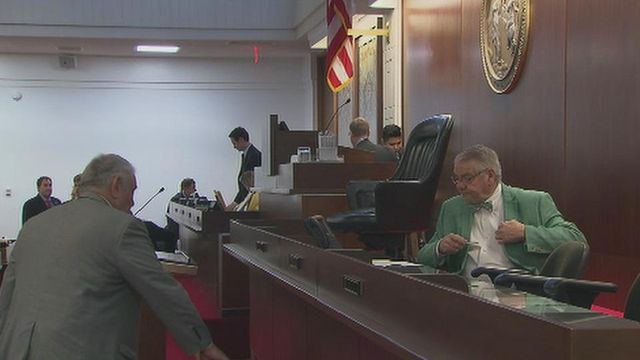Up-or-down elections for sitting appellate judges get House nod
The House on Tuesday narrowly approved a proposal to allow sitting North Carolina Supreme Court justices and Court of Appeals judges to face up-or-down elections at the completion of their terms.
Posted — UpdatedIn the so-called retention elections, only the incumbents' names would appear on the ballot, and voters would check either "for" or "against" another eight-year term for each.
If a majority of people vote against a judge, he or she would be required to step down, and the governor would fill the vacancy until the next statewide election in an even-numbered year. Then, a normal election would be held for the open seat.
Having a retention election is the option of each judge. He or she must decide a year before the end of his or her term and notify the State Board of Elections. If not, a conventional campaign and election will be held.
Supporters say retention elections would limit the campaigns – and the flow of special-interest cash they engender – for judicial seats.
"I think we all agree there are improvements to be made in the way we elect judges. This isn't the complete solution, but it is a good step forward," said Rep. Grier Martin, D-Wake.
Opponents called a retention election "convoluted" and said it takes away some responsibility from voters.
"When we have an election, we elect who we want in office," said Rep. Michael Speciale, R-Craven. "If we don't like this guy or lady, then the governor appoints (someone). I don't know why we would even consider something like this."
Rep. Marilyn Avila, R-Wake, said voting no on a retention election is equivalent to a sitting judge losing a campaign under existing rules, so there is no reason to change.
"There are ways to begin to control whatever we feel like is wrong with elections, but taking the power away from voters to make that decision is wrong," Avila said.
The House voted 63-54 in favor of the bill in an initial vote Tuesday, but three members switched their votes before the final tally was cast, narrowing the margin to 60-57. The measure now heads to the Senate.
Last week, the House voted to make all elections for the Supreme Court and Court of Appeals partisan after having nonpartisan judicial elections since 2004.
• Credits
Copyright 2024 by Capitol Broadcasting Company. All rights reserved. This material may not be published, broadcast, rewritten or redistributed.






